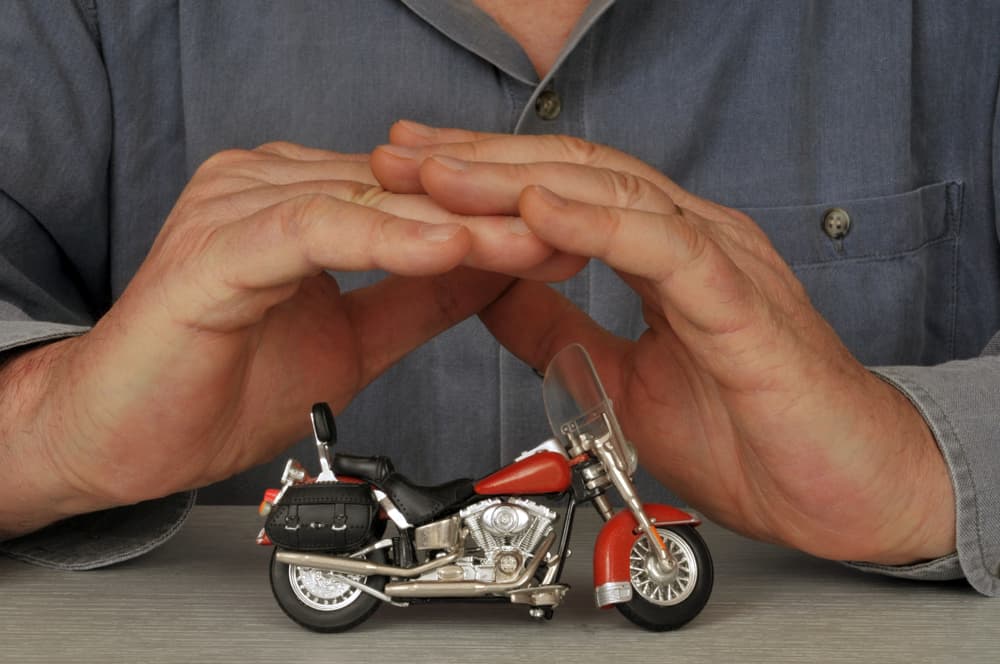Motorcyclists face more than just physical risks when involved in traffic collisions. They also face the challenge of proving who was responsible. In many cases, liability is not one-sided. You may have been speeding slightly, weaving between cars, or failed to notice a traffic signal. But does that mean you’re entirely at fault? And more importantly, does partial blame prevent you from seeking compensation for your injuries?
This is a common concern for injured riders. Insurance companies are quick to shift blame onto the motorcyclist, even when there’s shared fault or the other driver was clearly negligent. However, being partly responsible for a crash does not necessarily end your claim. The outcome depends on the laws in your state and how fault is divided between the parties.
If you have suffered an injury in a motorcycle accident you should always contact a seasoned Northern Virginia motorcycle accident attorney as soon as possible.
Understanding Shared Fault in Motorcycle Accidents

When a motorcycle crash occurs, the immediate question is often: Who caused it? But the answer is not always black and white. Liability can be shared between the rider and the other party. For example, a driver might fail to yield while turning left, but the motorcyclist may have been traveling slightly over the speed limit. In such cases, both parties might carry some degree of responsibility.
Shared fault arises in many common scenarios: a motorcyclist might change lanes without signaling, brake too suddenly, or ride between vehicles in congested traffic. While these actions may not be the primary cause of the crash, they can still contribute to how the collision unfolded, and that contribution matters in the eyes of the law.
In states that follow a comparative negligence system, liability is divided proportionally. The injured rider’s financial recovery will be reduced based on their percentage of fault. In contrast, in a handful of states that still follow pure contributory negligence, being even 1% at fault could completely bar recovery. That’s why having a motorcycle accident lawyer working with you is key to help you understand your jurisdiction’s rules.
Fault is not determined based on who feels responsible, but on evidence such as police reports, witness statements, traffic camera footage, accident reconstruction, and more. Insurance adjusters and, if necessary, courts evaluate all of this to assign percentages of fault to each party involved. This process can significantly impact the amount of compensation an injured rider receives.
What to Do If You Are Partly to Blame for a Motorcycle Accident
Realizing that you may have contributed to your own motorcycle accident can be unsettling. You might hesitate to file a claim, thinking it’s pointless or fearing that it will be denied. But assuming blame—or letting someone else assign it to you without question—can cost you far more than the accident itself. If there’s even a chance you were partly at fault, there are important steps you need to take to preserve your rights and protect your financial recovery.
Do Not Admit Fault at the Scene
After a crash, it’s natural to feel disoriented or even guilty, especially if you believe something you did may have contributed. However, it’s important not to apologize or make statements like “I was going too fast.” These offhand comments can be twisted into admissions of liability, even if you were not the primary cause of the crash.
Fault is a legal determination that depends on facts. Even if you think you might share some blame, let investigators, attorneys, and experts draw those conclusions based on evidence.
Gather as Much Evidence as Possible

Your version of events may be different from the other drivers’. If you’re partially at fault, it’s critical to collect evidence that shows what actually happened and why. Take photos of the crash scene, your injuries, road conditions, traffic signs, and vehicle positions. Get contact information for witnesses, as third-party accounts can clarify who was doing what and when.
Any detail that demonstrates the other party’s negligence can help reduce your share of fault and strengthen your claim. For example, if you failed to signal but the driver was texting, that evidence matters. The legal system considers context and not just isolated behavior.
Report the Accident Honestly
You should report the accident to your insurance company promptly. Be honest about the facts but avoid speculating or assigning blame, even to yourself. Stick to what you know, such as where you were, what actions you took, and what you saw.
Insurance adjusters want to minimize potential payouts. If they sense you’re willing to take partial blame, they will use that to reduce or deny your compensation. Before recording a statement or signing anything, consider speaking with your motorcycle accident lawyer to help you preserve the integrity of your case.
Let an Injury Attorney Evaluate Your Case Before You Assume the Worst
Many injured motorcyclists assume they’re ineligible for compensation because they made a mistake, only to find out later that they could have recovered substantial damages. However, a motorcycle accident attorney will examine all relevant facts and evidence. A skilled lawyer can help reconstruct the incident using expert analysis and challenge unfair fault assignments by insurance companies.
Don’t Delay Filing a Claim
Even if you’re partially responsible, motorcycle injury claims are still subject to statutes of limitations. Most states require claims to be filed within two or three years of the accident, and some even shorter if government entities are involved. Delaying too long can forfeit your right to any recovery, regardless of fault.
Filing sooner also improves your chances of success. Physical evidence is more likely to be preserved, and witnesses’ memories are fresher. If liability is contested as it often is in shared-fault cases, these details matter.
Document Your Injuries and Financial Losses
Partial fault does not diminish the seriousness of your injuries. If you’ve suffered losses and injuries, you may still be entitled to compensation. Keep detailed records of your treatment, receipts, income loss documentation, and journal notes about how your injuries affect your daily life.
This documentation becomes important when negotiating a fair settlement. Even if your recovery is reduced, that can still represent tens of thousands of dollars or more, provided you have the evidence to support your damages.
Get Legal Help That Fights for Your Rights
If you’ve been injured in a motorcycle accident and believe you may be partially at fault, don’t assume the insurance company or the other driver gets the final say. Fault is complex, and even a small difference in how it’s assigned can impact the outcome of your claim. You still have rights and options. A motorcycle accident attorney can examine every detail, challenge unfair fault assessments, and work to recover what you deserve. Call your personal injury lawyer today for a free, confidential consultation.
